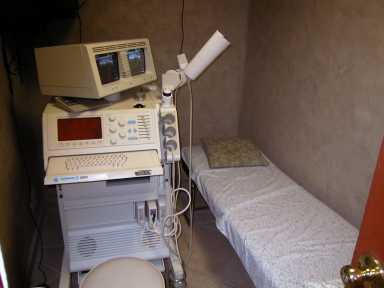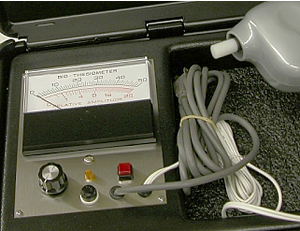

What is Type I Diabetes?
Type 1 Diabetes occurs when the body's own immune system attacks insulin-producing beta cells in the islets of pancreas and destroys them. This results in the pancreas producing little or no insulin, forcing an individual to take insulin through injections or an insulin pump. Symptoms include:
♦ increased thirst
♦ increased urination
♦ weight loss despite increased appetite and growth failure
♦ nausea
♦ vomiting
♦ abdominal pain
♦ fatigue
♦ absence of menstruation
Approximately 5% of Diabetics have Type 1 Diabetes. It usually occurs in children or young adults, though it can also develop or manifest later in older adults.When Immune destruction is slow and happens over the years.
A condition called as LADA - Latent Autoimmune Diabetes in Adults. This disorder increases the risk of Cardiovascular Disease, blindness (retinopathy), nerve damage (neuropathy) and kidney damage (nephropathy).
Type 2 diabetes: the basics
What is type 2 diabetes?
Your body gets energy by making glucose from foods like bread, potatoes, rice, pasta, milk and fruit. To use this glucose, your body needs insulin. Insulin is a hormone that helps your body control the level of glucose (sugar) in your blood. Type 2 diabetes is a disease in which your pancreas does not produce enough insulin, or your body does not properly use the insulin it makes. If you have type 2 diabetes, glucose builds up in your blood instead of being used for energy.
But The good news is….. You can live a long and healthy life by keeping your blood glucose levels (the amount of sugar in your blood) in the target range set by your doctor. You can do this by: Eating healthy meals and snacks Enjoying regular physical activity Taking diabetes medications (including insulin), if prescribed by your doctor Type 2 diabetes is a progressive, life-long condition; over time, it may be more difficult to keep your blood glucose levels in your target range. Your healthcare team can help by working with you to adjust your food plan, activity and medications
Complications of diabetes Over time, high blood glucose levels can cause complications such as blindness, heart disease, kidney problems, nerve damage and erectile dysfunction. Fortunately, good diabetes care and management can prevent or delay the onset of these complications.(for understanding these see our page on complications overview)
Managing your diabetes - General Rules:-
Here are some steps you can take to manage your diabetes and help maintain your overall health and wellness – today and in the future:
♦ Don’t smoke
♦ Check your blood glucose levels regularly and keep them in your target range
♦ Keep your cholesterol and other blood fats in your target range
♦ Maintain a healthy weight
♦ Keep your blood pressure close to target level
♦ Take your medication as prescribed
♦ Manage your stress effectively
♦ Follow a balanced meal plan
♦ Be physically active
♦ Take care of your feet
♦ Regularly visit your dentist, eye care specialist (every one to two years) and doctor
Your diabetes healthcare team can help
Your diabetes healthcare team can answer all your questions about how to manage your diabetes well. Depending on your needs and the resources available in your community, your team might include a doctor (your family doctor or a diabetes specialist), a registered nurse and a registered dietitian.
Treatment of Diabetes
Points to take note are:
Remember Diabetes is an Interplay of ‘Insulin Resistance‘, raising the needs of Insulin and on the other hand “Inability of B cells” to cope up with the demands; together called as Insulin Resistance and Secretory defect ;unless these two happen , Diabetes can not take hold in an individual, therefore, any treatment has to address these two basic problems.
1.)Secretory defects in response to raised demands are best declared by Fasting Blood Glucose levels whereas Insulin resistance causing severely increased demands is best seen as peaking blood glucose levels, in response to a normal or glucose challenge meals. In Pre-diabetes state both may present separately or together but in a full blown Diabetic both of these are present together ,as a rule
2.)No two patients are same and no single treatment can be exactly workable for two different patients even if they are twins! In other words- No medicine is going to give exactly same effects or side effects in two different individuals
3.)Every patient passes from different stages of disease and may fluctuate from higher levels to lower and vice versa
4.)Over the years, Insulin producing B cells in every Pancreas go down in numbers and productivity in fact Diabetes declares on the scene when almost 50% of B cells are either non functional or dead ! Remaining B cells keep losing their Insulin making powers with the passage of time In fact over 4 to 11 % people or may be more, every year, keep losing B cells completely. At this point you need to have Insulin support from Exogenous sources!5.)The rate of loss of B cells, though genetically determined, can be slowed for the sure, by Good weight and Diet management at Pre-Diabetes state and when Diabetes sets in, with a good control of Diabetes in addition to these two factors helps in maintaining good health of your B cells.
6.)Also note that in a Diabetic Individual, the mechanisms of slowly Increasing Insulin needs due to Insulin Resistance, after meals or Post- prandial rise in Glucose, followed by B cells “giving up” with Insulin secretion and then secretory capacities going down and down, all happen over the years and all these are stage wise progressions with many modifiable variable like Body weight, Meal size and composition, total calories per day, physical activity and stress, intercurrent diseases and medicines’ intake, are few important ones.
7.)A progressive disease like this ,needs to be matched with progressive and scientific improvisations in the treatment plans; therefore in a single individual at different times and situations we must have different strategies and plans with different Diet, Exercise and Medicinal formulations/combinations and this clearly means a treatment once prescribed ,to successfully control your blood glucose, may not remain efficient for long and sooner or later all this must be redesigned and restructured once again. Here lies the importance of Regular periodic monitoring and consultations.
8.)Metabolic Memory: Another Important fact-more aggressive you are in maintaining your Glucose levels to near normal, more benefits you will get from the treatment , an early and appropriate control is remembered by the Metabolic system in your body and rewards are sure similarly an undisciplined approach with bad controls in earlier phase ,are also similarly remembered by your system and damage control is less rewarding.
***For all Indian Ind ividuals above 35 yrs of Age it should be mandatory to Test for Fasting Blood Glucose and for Post-Prandial Glucose at TWO hrs after 75 Gs of Glucose load and if found normal then it should be repeated at every 2 yrs!
AND Also all overweight(85th percentile weight and above) adolescents of above 10 yrs of age, should be subjected to active screening , because with “soon arriving” puberty and hormonal changes/surges ,this age group will not give you enough time for interventions while progressing from Pre-Diabetes to Diabetes, in fact within few months the damage and progress to Diabetes may be complete and the Intervention phase for Pre-diabetes gets totally missed /lost in the process !
Adolescent Overweight /Obese Children are SPECIAL HIGH RISK CATEGORY:
Moreover an adolescentif develops Diabetes will pose a bigger problem for the society. Let me explain you how. Let us assume that complications take 10 years to take roots into the system and another 10 yrs. to cripple and killyou.If Diabetes comes at 15 yrs of age then by the age of 25 when you are getting married and settling down in a job you start facing the music from Diabetes related complications, you are afraid of facing your wife because of Erection difficulty or getting transient ischemic attack while on Honeymoon! and by the age of 35 yrs when your career graph is in full swing, your children are gearing up for greater postures, you are settling down with issues like property ,assets and are consolidating your final positioning in life , and then suddenly you are getting your first heart attack! which lands you in ICU !You may or may not survive,all energies,plans,dreams and ambitions going down the drain ! Just think what kind of life we are giving to our children.Dear all I am really very serious about these issues.